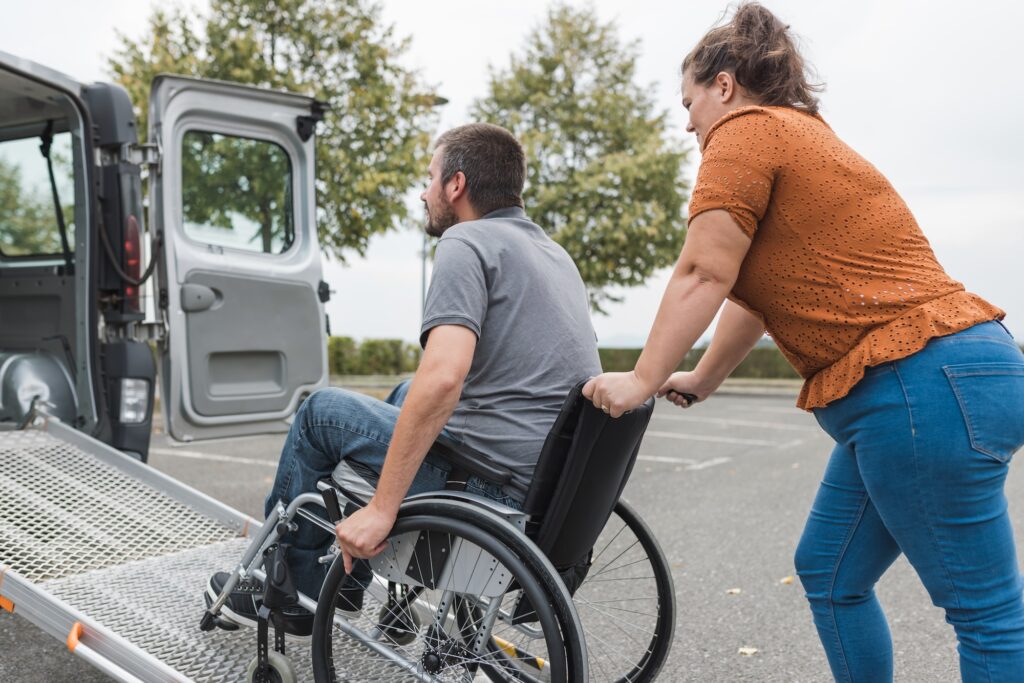
Leaving the hospital after a serious illness, injury or medical condition can feel overwhelming. Whether you’ve experienced a stroke, a brain injury or something else, you might wonder what comes next. You may be uncertain how to continue your recovery and where to find the right support. The average hospital readmission rate in the United States is approximately just under 15%. In some areas, this number can go up to more than 20%. Causes for readmission include chronic conditions and post-acute care needs. Some people may need to be readmitted when they don’t receive the continuing care they need outside of the hospital. This is one reason why transitioning from the hospital to a quality therapy program is important.
The transition to outpatient medical rehabilitation is where community liaisons come into the picture. Community liaisons work closely with patients, families and medical teams. Their goal is to make the transition as smooth as possible. Learning more about community liaisons can provide a better understanding of their essential role in the rehab process.
What does a community liaison do?
A community liaison is a healthcare professional who helps patients transition from one stage of care to another. They work between hospitals, rehabilitation centers and outpatient programs to make sure patients get the care and resources they need after leaving the hospital.
A community liaison:
- Coordinates care between the hospital and outpatient medical rehab
- Communicates with doctors, therapists and case managers
- Helps patients and families understand their next steps
- Connects patients with resources, transportation and services
- Supports patients in feeling confident about their recovery plan
Community liaisons are there to make the transition to outpatient medical rehab easier and less stressful for patients and families.
Why is the transition to outpatient rehabilitation important?
When a patient leaves the hospital, their recovery is not necessarily over. They may still need therapy, medical support and guidance to regain strength and independence. Outpatient medical rehab helps people continue their recovery efforts through physical therapy, occupational therapy and more. It can improve a person’s mobility, speech and daily skills affected by illness or injury.
While transitioning to outpatient medical rehabilitation is often a vital step, it is not always an obvious one. Leaving the hospital, you may not know where to start or how to arrange care. That’s why community liaisons are essential: They help patients take this next step with confidence.
Ways community liaisons help patients transition to outpatient rehabilitation
- Providing a plan — Leaving the hospital can bring a lot of questions. You may have questions like “Where will I go for rehab?” “What type of therapy do I need?” and “How will I schedule my first appointment?” A community liaison can provide clear, actionable answers. They will work closely with hospital staff to create a step-by-step plan for each patient’s transition to outpatient medical rehab. This process will include helping you schedule a first rehab appointment and explaining what the process will look like. They can also help ensure that all medical records are transferred properly.
- Connect to services — Some patients may need extra support to continue their recovery at home and in outpatient medical rehab. A community liaison can help you through the process of finding services that provide the support you need. They may connect you with transportation services for patients if you can’t drive. They can help you through the process of accessing medical equipment such as wheelchairs or walkers. They may even help you figure out how to get home modifications like ramps or handrails for safety. By coordinating these services, community liaisons help people keep up with their lives and avoid delays in their recovery.
- Coordinating care — A patient’s medical team includes many people. Doctors, nurses, therapists, case managers and more may play a role. Without proper communication, important details can get lost during the transition from hospital to rehab. A community liaison may help keep everyone on the same page. They might do this by sharing important information, coordinating with therapists and following up with doctors to provide progress updates. Teamwork helps ensure that you get the best care possible.
Ability KC’s community liaisons are here to help you
At Ability KC, we’re here to help you through each step of your rehabilitation journey. Our community liaisons can work with you as you transition from the hospital to outpatient medical rehabilitation. Our outpatient therapy takes place in a designated Comprehensive Outpatient Rehabilitation Facility (CORF) with a Commission on Accreditation of Rehabilitation Facilities (CARF) accreditation. From your transition from the hospital to your transition back into daily life activities, we’ll support you all the way through.
Contact us today for more information about our community liaisons or to schedule an initial appointment. You can also fill out our Build Your Plan questions designed to help our team better understand your needs and assist you in figuring out your next steps with us.